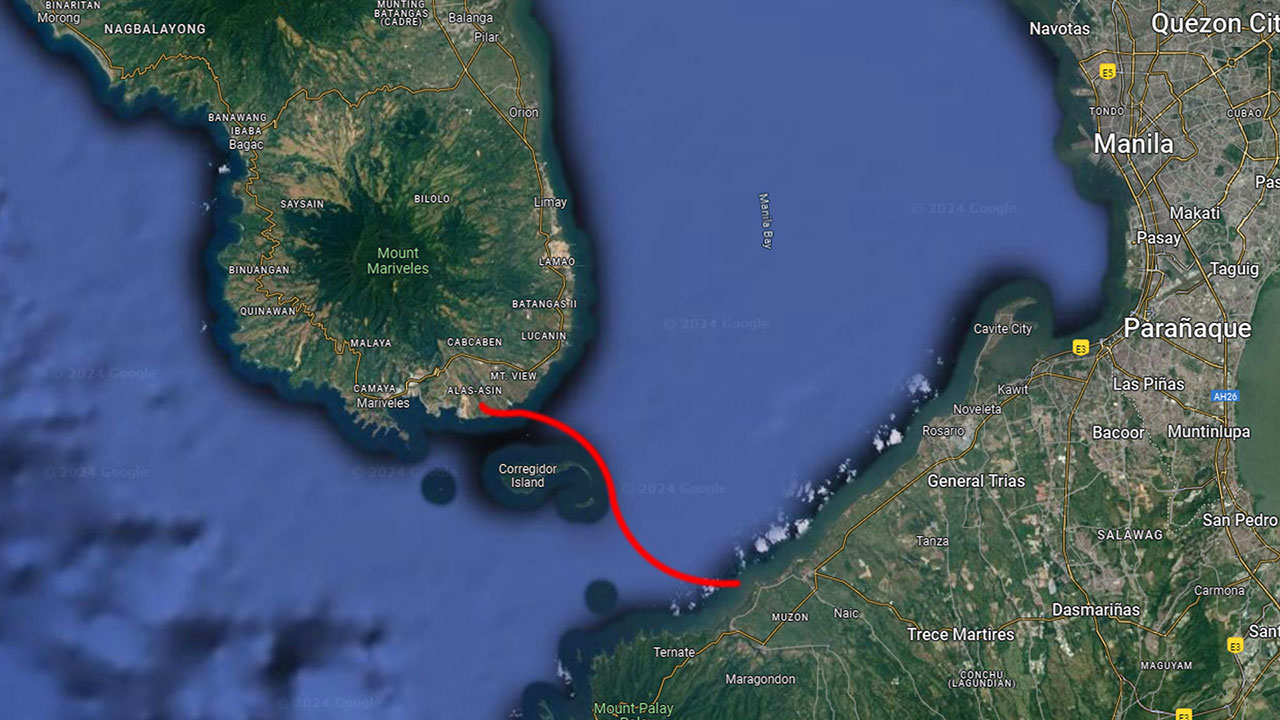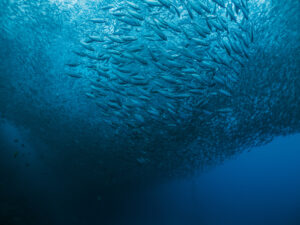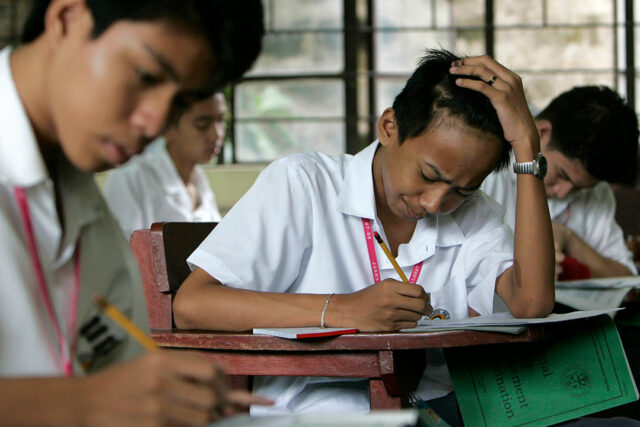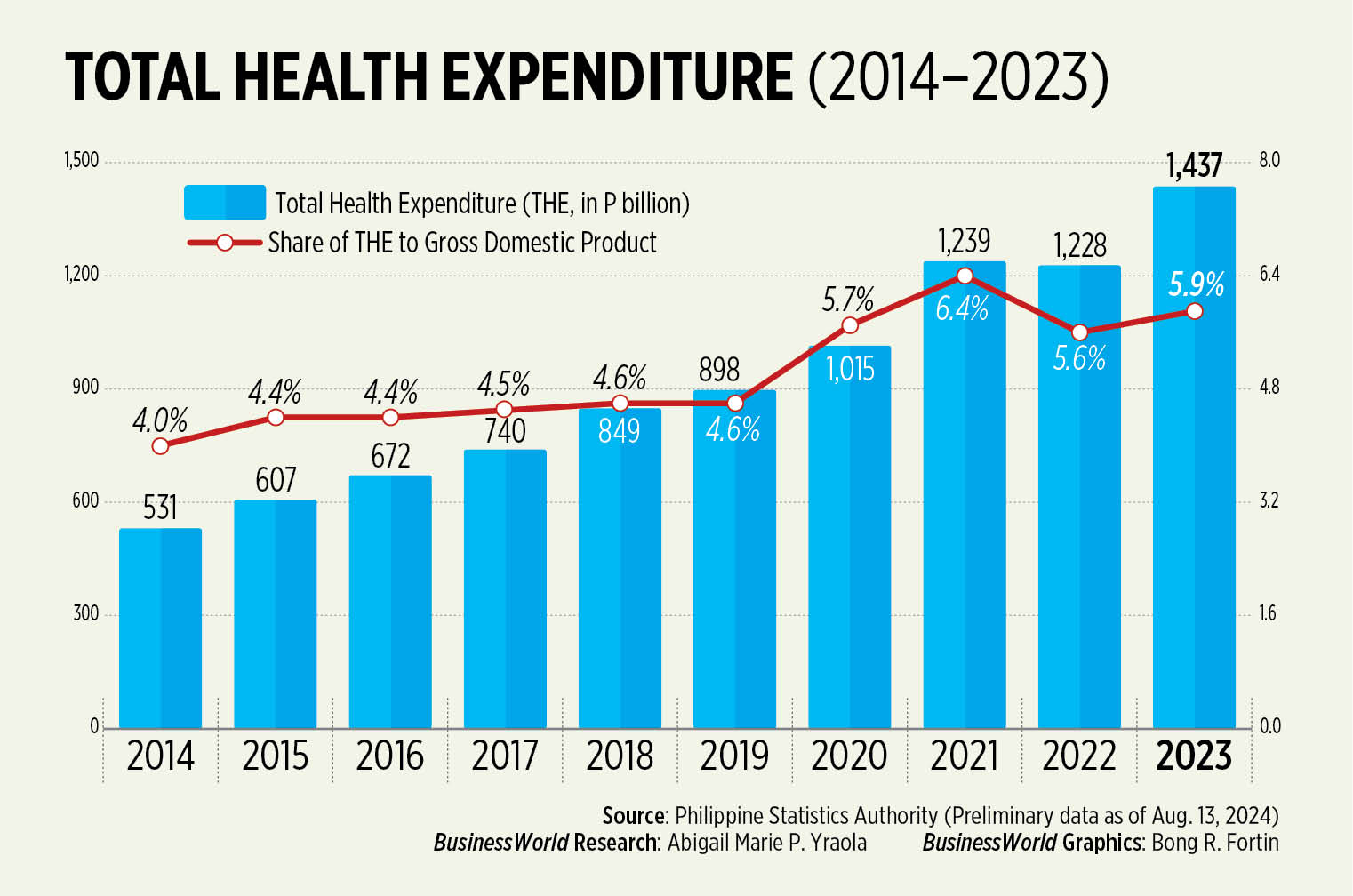Integrated rail, bus, and active transit systems needed for better commuting — experts
By Ashley Erika O. Jose, Reporter
A COMPREHENSIVE and integrated transport plan should incorporate active transportation options like walking and cycling, along with first-mile, last-mile connectivity solutions, to create a seamless and efficient network for commuters, according to transport experts.
“Investment in rail is important, but it is not the sole solution to our mobility issues; it needs to be matched by equal investment and attention to supporting active and public transportation,” Ira F. Cruz, a transport advocate and director of AltMobility PH, said in a Viber message.
Under an underdeveloped active and public transportation system, the majority of Filipinos have to contend with unreliable, unsafe, and undignified daily commutes, he said, adding that this also translates to economic losses.
 With this, the government must tap and promote active transportation as part of a comprehensive transport plan involving multi-sectoral initiatives with members from the transport sector, experts, and civil organizations, he noted.
With this, the government must tap and promote active transportation as part of a comprehensive transport plan involving multi-sectoral initiatives with members from the transport sector, experts, and civil organizations, he noted.
The Transportation department has launched an ambitious rail network plan designed to reduce traffic congestion, enhance mobility, and improve regional economic activities.
“We are looking into improving travel… We are expecting more progressive development of [rail projects]. We are aiming for substantial and comfortable travel times for the riding public,” Transportation Undersecretary for Railways Jeremy S. Regino said in an interview.
The worsening traffic congestion problem is not unique to the Philippines but rather similar to many urban cities across the globe driven by a car-centric society, according to analysts.
“If everybody ditched their cars and used public transport, this problem will disappear in thin air,” said Nigel Paul C. Villarete, senior adviser on public-private partnership at the technical advisory group Libra Konsult, Inc.
Mr. Villarete said the Philippines’ neighboring countries in Asia like Singapore, Japan, and Hong Kong offer good public transport alternatives that even car owners patronize.
“For Metro Manila and Metro Cebu and other urban areas in the country, we should fast-track more rail and bus-based systems,” Mr. Villarete said.
However, most of the Department of Transportation’s (DoTr) big-ticket rail projects are expected to become operational between 2028 and 2030, Mr. Regino said.
These include the North-South Commuter Railway, which is slated for full operations by 2029; the Metro Manila Subway project, which is expected to be operational by 2029; the Mindanao Railway project, currently undergoing a design overhaul; and the Metro Rail Transit Line 7 (MRT-7), which is scheduled to commence operations by 2028.
COLLABORATION
The Japan International Cooperation Agency (JICA) and the DoTr are collaborating on a railway master plan aimed at bringing the Philippines’ rail lines up to international standards by incorporating Japanese technologies, while also increasing the share of passenger trips and improving the sustainability of the rail network.
“We are also supporting the master plan for the future possibility because here you have only three lines. We have 83 lines with the same land area size between Metro Manila and National Capital Region and Metropolitan Tokyo,” JICA Chief Representative in the Philippines Takema Sakamoto said in an interview.
“We do not need a patchwork or piecemeal railway project. We need to make a comprehensive plan but that will take time,” Mr. Sakamoto noted.
The Philippines’ long-standing transport problem stemmed from the government’s decade-long refusal to introduce reforms in the transportation sector, AltMobility PH’s Mr. Cruz said.
“The government opts to continue a regime of car-oriented policies that, at the end of the day, compromises everyone’s mobility — including those in motor vehicles,” he added.
For AltMobility PH, rail networks alone will not advance the country’s transport sector as it has to be complemented by feeder systems like jeepneys.
The Philippines will never unlock the full potential of rail systems if the government continues to ignore the importance of creating an ecosystem of transportation networks, Mr. Cruz said.
For Metro Manila and Metro Cebu, the government must fast-track not only rail projects but bus-based systems like bus rapid transit, Libra Konsult’s Mr. Villarete said.
Rene S. Santiago, former president of the Transportation Science Society of the Philippines, said the Philippines’ ongoing transport challenges are a result of the government becoming oblivious to past lessons.
“Rail network will help ease congestion in the long run but won’t solve traffic congestion without corollary efforts on road-based public transport and land use controls. Our zoning regulations are a big joke,” Mr. Santiago said.
FUTURE DIRECTIONS
Mobility solutions company MPT Mobility Corp. plans to bring its proposed technology-driven mobility solutions to Metro Manila to help address transport woes.
“That is the vision. For now, let’s make this work in Baguio first,” Leo Emmanuel K. Gonzales, assistant vice-president for corporate affairs at MPT Mobility, said in a Viber message.
MPT Mobility, the innovations arm of the Metro Pacific Tollways Corp., has proposed to implement its tech-driven mobility solutions in Baguio, which include the collection of congestion fees or the mobility program, smart parking management system, advanced traffic management system, and public transport fleet management system.
Mr. Villarete said the government must also consider diversifying the mix of transport systems by also looking into first-mile, last-mile or FMLM connectivity.
He said understanding the role of FMLM and how to better utilize this mode of transportation presents opportunities in advancing the country’s transport sector.
“It’s one thing to patronize public transport, it’s another to get home from a train or bus station,” he said.
He said mobility is seldom addressed by a single solution, and while rail may offer the highest capacity, the government must still design a diversified transportation mix factoring in the rise of ride-hailing companies and transport network vehicle services.
“The speed and ease of rail transport is often offset by the difficulty and inconvenience in getting home from a station,” Mr. Villarete said.
FMLM mode of connectivity provides direct connectivity from point A to point B or an FMLM trip, he said.
“Roll out more and better passenger transport services to cover areas and provide convenient FMLM connections,” he said.
The utilization of transportation network vehicle services (TNVSs) is exactly what is needed to solve the FMLM issues as they offer solutions to other mobility needs, Mr. Villarete said, urging the government to craft better regulations for TNVS.
“TNVS offers more productive use of shared transport like cars and motorcycles. The constraint for wider use is archaic government regulations,” Transport expert Mr. Santiago said.
According to Mr. Cruz of AltMobility PH, the increasing number of TNVSs can also be leveraged, but the government should first develop a plan to assess how their growth can be integrated with other modes of transportation.
“Transport planning is a holistic practice. There is no single magic pill that will improve our mobility,” he said.























